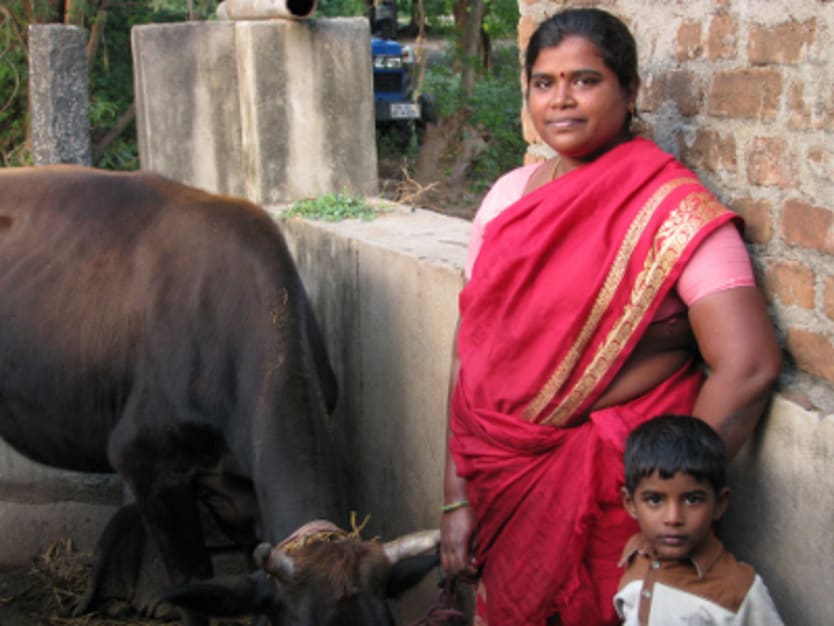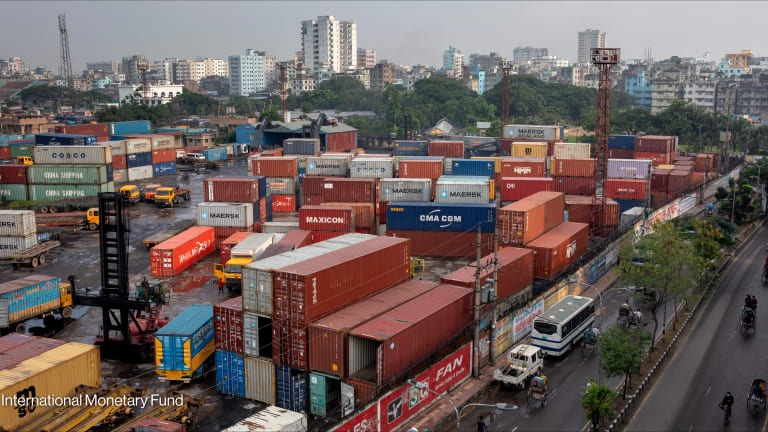
It’s a period in history that India’s microfinance industry would probably rather forget: In late 2010, more than 200 poor residents of the Andhra Pradesh state committed suicide allegedly due to excessive pressure from microcreditors for debt repayments. Backlash against microfinance institutions not just in the state but the whole of India followed.
Today, the Indian microfinance industry continues to struggle, particularly with liquidity as many local commercial banks have shut their doors to MFIs following the scandal. The Asian Development Bank has come forward to help ease the sector’s pain, in perhaps the biggest single facility for microfinance guarantees ever offered by a bank.
In a deal announced Aug. 13, ADB tapped IFMR Capital — an India-based nonbanking financial firm helping institutions catering to poor households gain access to capital markets — to structure a partial guarantee program for loans to India’s MFIs. Ratnakar Bank will serve as the domestic banking partner for the facility and will extend rupee loans with partial guarantees to MFIs. According to a company blog post, ADB has allocated 5 billion Indian rupees ($90.2 million) to underwrite partial guarantees under the partnership.
Partial guarantees aim to cover losses due to loan defaults. IFMR said in its blog post that the facility is part of the broader Microfinance Risk Participation Program, under which ADB pledges up to 50 percent partial guarantee. In other words, if an MFI that qualifies under the program takes out a $10 million loan from a commercial bank in India, ADB pays $5 million in case the borrower fails to pay up.
This move by ADB comes with considerable benefits.
“I think it means the liquidity crunch that has prevented microfinance institutions in India from getting capital to grow, thatshould be partly alleviated,” said Camilla Nestor, vice president of financial services at the Grameen Foundation. “There should be a little bit more capital flowing into the sector. That’s a big plus. It gets the banks re-engaged as well in microfinance.”
The Grameen Foundation, which has no financial or institutional ties to the bank founded by Muhammad Yunus but whose mission is to spread the philosophy pioneered by the Nobel Peace Prize laureate, has been working in India since 2000. And at the height of the MFI liquidity crisis in 2010, it launched a program providing $8 million in guarantee funds, with the goal of generating at least $16 million in local currency financing to MFIs working to alleviate poverty.
Commercial banks and other private entities have provided similar MFI loan guarantees before, but none as large as what ADB has committed to this facility. The only institution that could rival ADB, when it comes to guarantees in general, would be the U.S. Agency for International Development’s Development Credit Authority. In 2011, DCA offered guarantees worth $89.1 million, mobilizing $193.8 million in private capital for various sectors. It normally guarantees 50 percent of total capital mobilized.
ADB’s support to Indian MFIs sends a strong message, but it could be marred unless it reaches those who need it most.
“Is the ADB willing to take risks on the microfinance institutions that are truly reaching the poorest and working in underserved areas, or they’re just going to go to the top 10 big names,” Nestor said. “If it’s just going to go to top 10 big names, I think we’ve lost a big opportunity.”
When asked by Devex, a representative from ADB clarified that there are no specified criteria to qualify, with MFIs evaluated individually to determine their eligibility based on the organization’s credit quality and scope of operations, among others. Loan terms are typically negotiated between the lender, in this case Ratnakar Bank, and the MFI.
Rolf Rosenkranz contributed reporting.
Read more development aid news online, and subscribe to The Development Newswire to receive top international development headlines from the world’s leading donors, news sources and opinion leaders — emailed to you FREE every business day.




